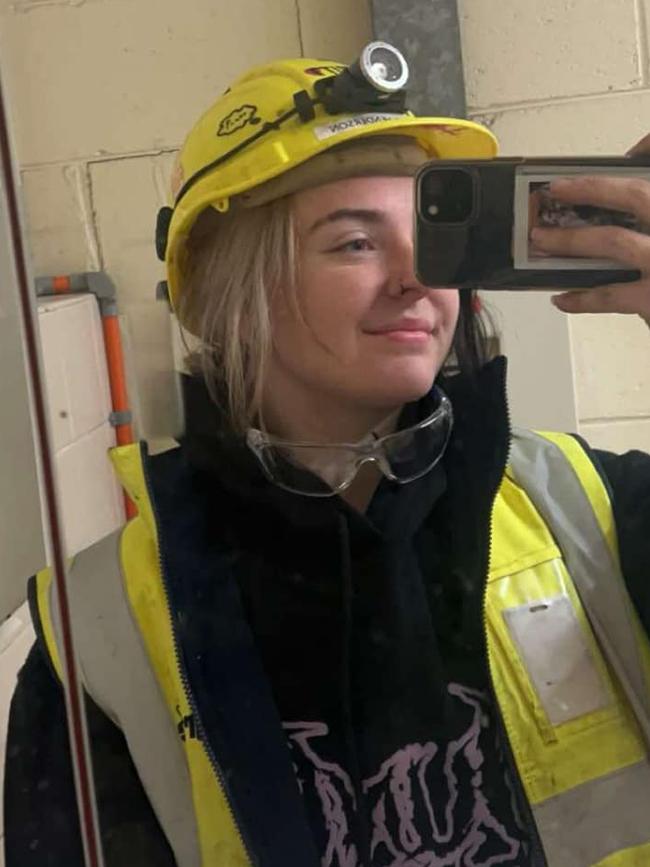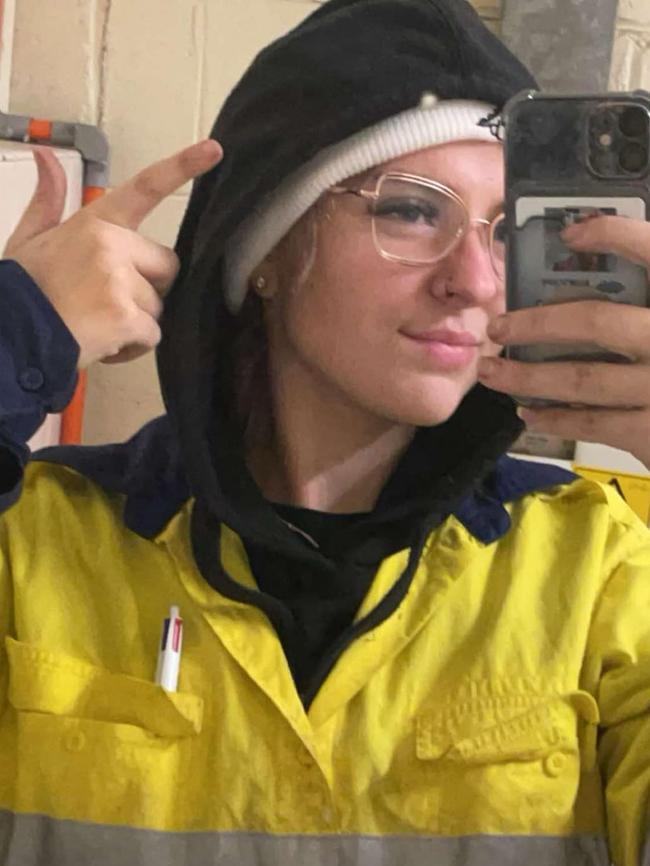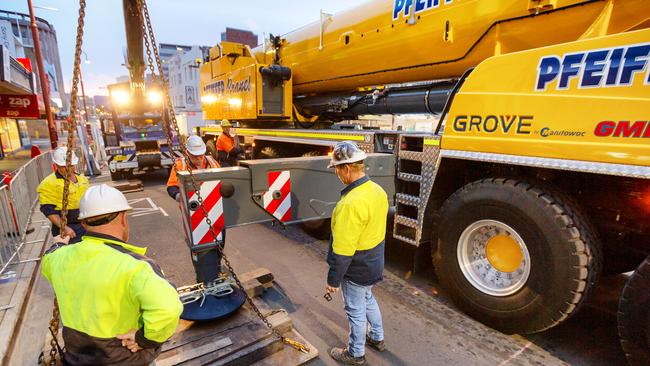‘Not talking’: Gross comment that almost made young tradie quit
A single sentence has summed up the treatment that women still face in the construction industry.

Careers
Don't miss out on the headlines from Careers. Followed categories will be added to My News.
“We’re not talking to you. We’re talking to the men.”
This was the first of many remarks made to Britney Henderson when she started her electrical apprenticeship.
The tradie industry is still male-dominated, with 156,979 women in the building and construction sector, compared with 910,680 men, according to the 2021 Australian Bureau of Statistics.
Even of the few women who do manage to break into the industry, one in 10 end up leaving due to harassment at work, a report from The National Association of Women in Construction revealed.
In fact, the stats just get worse and worse.
A staggering 88 per cent of women in the sector have faced micro aggressions at work, The Not-So-Little Things Affecting Women in Construction report revealed.
Of these incidents, 41 per cent came from supervisors or managers, and 63 per cent of women who reported microaggressions at work said there was no change.
Ms Henderson is matter-of-fact about her experience.
“I think the first micro aggression experiences I had was when a few guys asked the other male apprentices questions and talked to them rather than me,” she told news.com.au.
“I would be completely ignored by them, and when I said something, they would always say: ‘We’re not talking to you; we’re talking to the men who will get a job here’.”


Ms Henderson said those kinds of comments made her feel like she’d chosen the wrong profession.
“(It) made me feel completely useless as a first-year apprentice, like I was in the wrong field and that I didn’t belong there cause I was a woman. It honestly made me consider quitting,” she said.
The 23-year-old was aware she was entering a blokey industry, but she thought that if she worked hard and made an effort to get along with everyone, she’d fit right in, and it wouldn’t be an issue.
“A part of me was surprised, and another part wasn’t. I knew the field I was going into was heavily male-dominated, and I had heard stories about men refusing to accept women in the workplace, but I didn’t expect it to happen to me,” she said.
“Thankfully, I have bosses who are aware of the issues women face in this industry, and actively make sure I and other female apprentices feel welcome and encourage us to stick to our guns, even if other men in the industry try to ignore us or think we can’t do the job because of our gender.”

Michelle Ha, DEI consultant for TDC Global, said microaggressions persist in the construction industry for several reasons.
“First, it remains a traditionally male-dominated field, where outdated attitudes about gender, race, and other identities can go unchallenged,” she told news.com.au.
“Many microaggressions stem from unconscious biases, and often, people, including some leaders, aren’t even aware of the term or its implications.”
“This lack of awareness means they may unintentionally reinforce harmful behaviours. The industry’s tough culture can also normalise inappropriate comments or actions as part of the job, making it difficult to address these subtle forms of discrimination.”

Ms Ha has heard stories from women in the industry who are often left disappointed by the way the men they work with treat them.
“There are many instances where microaggressions manifest in everyday interactions. For example, women in construction frequently hear dismissive comments such as, ‘You can’t take a joke’ when they call out inappropriate behaviour, suggesting that their concerns are overreactions,” she said.
“In another common scenario, women in leadership roles are often mistaken for executive assistants or meeting hosts, rather than being recognised for their expertise.”
Ms Ha said this kind of assumptions just reflected the “ingrained” biases about gender roles in construction.
“It sends a message that women don’t belong in high-level roles, which can be incredibly frustrating and demoralising,” she said.
Ms Ha said that it is vital that we start addressing microaggressions in the construction industry, and the best way to do that is through education.
“To address microaggressions, companies and industry leaders need to focus on education and creating a more inclusive culture,” she advised.
“Training programs that focus on unconscious bias and the impact of microaggressions are a great first step.
“It’s important to cultivate an inclusive culture where all employees feel empowered to call out inappropriate behaviour without fear of retaliation.”
Originally published as ‘Not talking’: Gross comment that almost made young tradie quit





